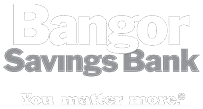
Avoiding Overdraft-Related Fees
Overdraft-Related fees may be charged when your account does not have enough money for a purchase or payment you try to make. In some cases, the bank allows a transaction to go through, despite your account balance not being sufficient to cover it. The bank will often charge you an Overdraft or Paid Item fee. If the transaction is declined or rejected, you may be charged a Non-Sufficient Funds (NSF) or Returned Item fee.
These charges can add up, which is why it is important to understand what you can do to avoid overdraft situations.
Best practices to avoid Overdraft Related Fees
- Use direct deposit if your employer offers it as a way of getting your paychecks into your checking account faster. That way, you are less likely to be in a situation where you overdraft your account because you have not had time to deposit your paycheck yet.
- Keep track of the balance in your checking account by using the method that works best for you, such as online banking or even a checkbook register. This is the best way for you to know exactly how much money you have available at any given time. It may take several days for electronic bill pay withdrawals to go through or for paper checks to clear. Note them in your checkbook register, along with ATM withdrawals and debit card transactions. Then check your balance before making a purchase or writing a check to ensure you have enough money to cover it.
- Consider linking your checking account to another deposit account you have at the bank. Then, your bank will transfer money from your linked account to your checking account to cover the purchase. Some financial institutions may charge you a small fee, but it's typically less than the overdraft charge. Bangor Savings Bank calls this service “Account-Link Overdraft Protection” and there is no transfer fee.
- Try to keep a buffer in your checking account all the time. Even just keeping a minimum $100 account balance will prevent you from triggering an overdraft when you spend a little more than you planned. Try to think of the last $100 as unavailable. Quickly deposit money to get back up to $100 if your balance drops below that amount.
- Set up an alert so your bank will notify you if your checking account balance falls below a specified amount. If you receive the notifications on your phone, you can adjust your spending to avoid making an overdraft on your account and incurring a fee.
- Carefully manage joint accounts and consider separate accounts if you have difficulties coordinating your spending habits. If one of you is making purchases the other does not know about, this could easily lead to an overdraft.
- If you find yourself in an overdraft situation, deposit money into your account as soon as possible to pay the fee and get a positive balance again. Some banks may charge you an additional fee for each day your balance is negative, or another large fee if your account has a negative balance for several days in a row after an overdraft.
